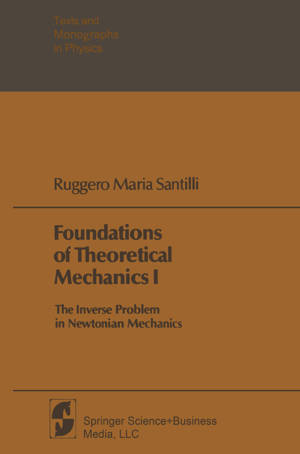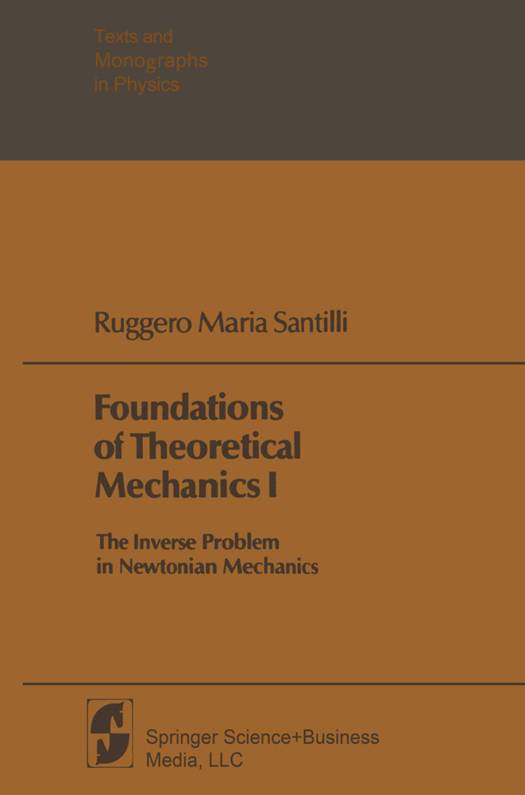
- Retrait gratuit dans votre magasin Club
- 7.000.000 titres dans notre catalogue
- Payer en toute sécurité
- Toujours un magasin près de chez vous
- Retrait gratuit dans votre magasin Club
- 7.000.0000 titres dans notre catalogue
- Payer en toute sécurité
- Toujours un magasin près de chez vous
Foundations of Theoretical Mechanics I
The Inverse Problem in Newtonian Mechanics
Ruggero Maria Santilli
111,95 €
+ 223 points
Description
The objective of this monograph is to present some methodological foundations of theoretical mechanics that are recommendable to graduate students prior to, or jointly with, the study of more advanced topics such as statistical mechanics, thermodynamics, and elementary particle physics. A program of this nature is inevitably centered on the methodological foundations for Newtonian systems, with particular reference to the central equations of our theories, that is, Lagrange's and Hamilton's equations. This program, realized through a study of the analytic representations in terms of Lagrange's and Hamilton's equations of generally nonconservative Newtonian systems (namely, systems with Newtonian forces not necessarily derivable from a potential function), falls within the context of the so-called Inverse Problem, and consists of three major aspects: l. The study of the necessary and sufficient conditions for the existence of a Lagrangian or Hamiltonian representation of given equations of motion with arbitrary forces; 2. The identification of the methods for the construction of a Lagrangian or Hamiltonian from given equations of motion verifying conditions 1; and 3 The analysis of the significance of the underlying methodology for other aspects of Newtonian Mechanics, e. g., transformation theory, symmetries, and first integrals for nonconservative Newtonian systems. This first volume is devoted to the foundations of the Inverse Problem, with particular reference to aspects I and 2.
Spécifications
Parties prenantes
- Auteur(s) :
- Editeur:
Contenu
- Nombre de pages :
- 266
- Langue:
- Anglais
- Collection :
Caractéristiques
- EAN:
- 9783662236833
- Date de parution :
- 01-01-84
- Format:
- Livre broché
- Format numérique:
- Trade paperback (VS)
- Dimensions :
- 156 mm x 234 mm
- Poids :
- 412 g

Les avis
Nous publions uniquement les avis qui respectent les conditions requises. Consultez nos conditions pour les avis.






